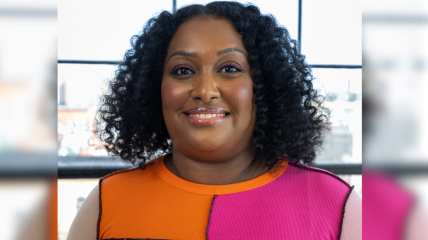Watch: Black women on support when it comes to mental health
Outside of seeking professional help, Dr. La Shawn Paul, Andrea Dalzell, Amaka Gratia, D'shonda Brown and Yasmine Jameelah share other forms of support.
In a previous conversation for theGrio’s series “Unheard,” Dr. La Shawn Paul (founder of Social Work Diva, mental health therapist and consultant), Andrea Dalzell (registered nurse and chief operating officer for Access Project Harlem), Amaka Gratia (psychiatric nurse practitioner and mental health consultant), D’Shonda Brown (culture and entertainment expert and editor) and Yasmine Jameelah (founder of Transparent Black Girl) opened up about their mental health journeys.

Support looks different for each person’s journey. The women shared ways, in their professional and personal lives, that they show support.
The following is a transcript of their conversation.
Dr. La Shawn Paul: I think support and mental health looks different for each individual, right? But collectively, collective care is where we start. I think that also policy, access, more education on mental health is also necessary and important. But also, I think that even when we have friends and family members, like you just mentioned, we can’t rely on them to take care or erase or eliminate what we’re feeling. And I think that oftentimes, too, we expect the individual that’s dealing with mental illness to reach out, or depression to reach out. And it’s a burden where internally they’re feeling a certain way. And oftentimes a symptom of that is isolation. So some of it, too, is making sure that we’re there for each other and checking in and like, “Are you OK, Sis?” But not on a surface level where I expect you to be fine, but I actually want to listen and I’m making time to value in this moment you and your existence.
Andrea Dalzell: For me and my patients, yes, support looks very different for everyone. But my patients, instead of asking like, how are you feeling today, how are you doing today, “What color are you feeling right now?” Getting them to really think about a thought process. Think about why that color and prolong it to get it out of them. And that’s how I show support. Then, out to the rest of the people around me, sometimes it’s not just saying, “Hey, you OK?” It’s like, “Hey, what are you feeling?” If I haven’t heard from you, “What’s your color? What color are you vibing off of right now?” Because sometimes if they’re going to tell you dark blue or black, “What’s going on? Let’s have a conversation. Let’s go out, let’s get some sun.”
Amaka Gratia: I want to piggyback off of that just in terms of showing support, just listening. I do a lot of listening. You know, when I’m seeing my clients, especially with COVID, coming out of that, loneliness was huge, isolation was huge. Some people just need someone to talk to. So if you are a person who is looking to find ways to support the people in your world, just let them know that you can be a listening ear, non-judgmental. You can be a safe space, just making sure that you’re validating what they’re sharing with you and, you know, reassure them that they’re not crazy and that they’re not alone.
D’Shonda Brown: So it can look like grace, because oftentimes we as Black women we’re expected to do everything, everywhere all at once for everybody. But sometimes people need to understand, like: I know that I made plans with you, but today I just can’t do it. I know that I had to do this assignment and I was committed to it, but I feel really burnt out. I know that I was supposed to do A, B and C with you today, but maybe only one of those things can get done. So it’s about having patience with the person who’s going through it.
Yasmine Jameelah: I think with support also, like you were saying, that we should also be empathetic and, even in the conversation that we’ve just had, so many of us have had so many different experiences. And so if you’re having a conversation with a friend or family member, and you’re wanting to support them. Know that that means having empathy for their perspective, even if it doesn’t look like yours. Letting them know not just that I’m here for you, but also sometimes even just sitting with them, even if they don’t have the words or the language for what they’re experiencing. Just that presence. I know when I’m dealing with stuff and I’m feeling really overwhelmed, literally, just physically being with my mother, being with my best friend, being with my family and people that are really close to me, sometimes that presence, even if I don’t have the words, just that knowing that you have people literally physically surrounding you, it can be a lot of help.
TheGrio is FREE on your TV via Apple TV, Amazon Fire, Roku, and Android TV. Please download theGrio mobile apps today!


